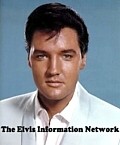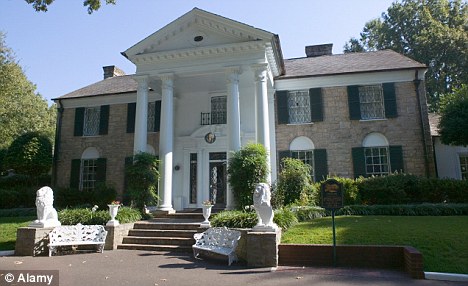 |
 |

Reviewed by Nigel Patterson, December 2014
With an intriguing title, Tillander's book is structured in two parts, the first a six chapter section examining the Elvis story chronologically. Part 2 is a 13 chapter (plus listing of Who's Who in the Elvis world) consideration of Elvis the person, from his political and spiritual beliefs to those who influenced him and his relationship with African-Americans. Tillander examines the Elvis story in the context of its socio-cultural influences. He also challenges well known issues. For example, he correctly observes John Lennon's statement (assuming he ever did say it) that 'Before Elvis there was nothing' is untrue (given the rich musical history that pre-dated and influenced Elvis). On another issue he discusses the public relations image of Elvis ("A fictitious image of Elvis") and challenges the claim:
One of the more important chapters (#15) deals with Elvis' relationship to African Americans commencing with the scene setting question why don't some black people like Elvis? In this chapter Tillander offers a cogent appraisal of Elvis' contradictory relationship to the black civil rights movement. At another juncture Tillander offers a not unreasonable, albeit quite short, consideration of the Colonel and his lack of long-term planning, including:
There are also very strong accounts of individual members of Elvis' Memphis Mafia, uplifting stories of Elvis' spontaneous generosity and intriguing reflections on Elvis the bibliophile. The world knows Elvis Presley caused some controversy with its pre-publication promotion referring to Elvis' collection of Nazi memorabilia. As detailed in chapter 18 the author's claim is correct and the suspicions raised by a number of sites, including EIN (our apologies to Bruno Tillander), was unfounded. Numerous pieces from the collection formed part of the Butterfield & Butterfield (now known as Bonham's) Elvis auction in Las Vegas on 6 and 7 October 1995*, while other pieces are/were in the possession of Dick Grob. The Butterfield auction items included:
It is also believed Elvis owned a rifle (possibly stored in the attic at Graceland) which once belonged to Hermann Goering (Commander-in-chief of the Luftwaffe and for a time one of Hitler's closest confidantes)!
Biographical details for many of the people mentioned are descriptive and minimalist, reflecting their inclusion as encyclopedic type entries.
The world knows Elvis Presley is well served by both the welcome inclusion of sections on little known players in the Elvis story such as Ernest C. Withers (Memphis photographer) and Harry Geissler (founder of Factors Etc Inc.). and the author imbuing his narrative with accounts from the complex Elvis story which are impressively compelling........one such instance being the power play around the recording of Guitar Man, when singer-songwriter, Jerry Reed, took a confrontational stand with music publisher, Freddy Bienstock and Memphis Mafia member, Lamar Fike, on the issue of songwriter royalties:
The eclectic range of information on offer is unlikely to meet with approval by all readers. Its mix of minutiae and more substantial concerns ranges across:
One of Elvis' girlfriends in the 1950s, Barbara Hearn (Smith) contributes 4 pages of insightful narrative and photos from her personal collection and there are sections on Jerry Schilling's first visit to Graceland; the Lansky Brothers and Elvis' visit to the Moulin Rouge in Paris. Other text and photographic contributions come from Dr. Nick, Larry Geller, Scotty Moore and Jerry Weintraub.
As a total package Tillander presents a comprehensive consideration of the Elvis story including post August 1977 issues affecting Elvis' ongoing presence as an international icon. What he offers is not a linear, factually based biography, but rather an examination which pierces below the surface to discover what influences shaped and drove Elvis and those things that represented who he was as a person (not just his star image). The book design is very good with high quality semi-gloss paper stock, hundreds of excellent color and b&w images and a strong, thoughtful narrative which, as the author's considered opinion, is valid (and of course open to contrary views on some issues). Verdict: The world knows Elvis Presley - but they don't know me** is a valuable and interesting addition to the burgeoning Elvis book library. The narrative is a balance between descriptive accounts of friends, family, work in Elvis' life and the author challenging various myths in the Elvis world. In the latter respect it is a thought provoking read which many readers will appreciate and others will probably nit-pick about. Bruno Tillander has achieved his objective of producing a serious examination of who the 'real Elvis' was and in doing so has produced an important release which not only has gravity but shapes itself as one quite different to most other books written about Elvis. ** the title is Elvis' own words to Larry Geller shortly before his death (they represent the frustration Elvis felt that his fans saw only his star image, not Elvis the human being, and were the motivation for Bruno Tillander to provide an objective and serious perspective on who Elvis really was)
|
|

.jpg)
